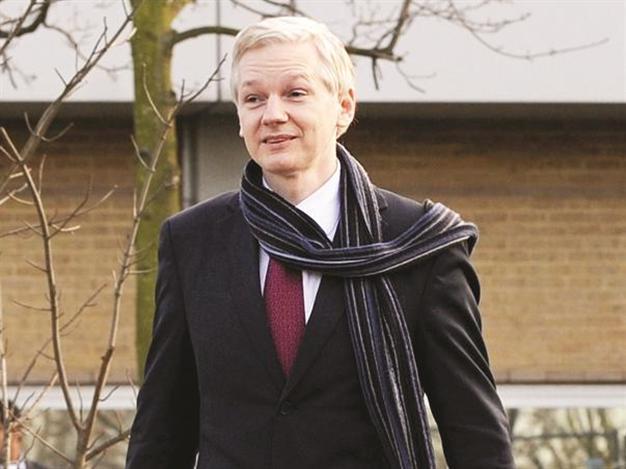Ecuador, UK engage in Assange spat
LONDON / QUITO

AFP Photo
Ecuador has granted political asylum to WikiLeaks founder Julian Assange, who has been at the country’s London embassy for the past two months, bringing about a new showdown between the two countries.The U.K. said that it would deny Assange safe passage out of the country, and issued a letter urging to arrest him from the embassy’s premises. If Assange is extradited to the United States, he “would not receive a fair trial [and] could be judged by special tribunals or military courts,” Ecuador’s Foreign Minister Ricardo Patino said, explaining his country’s reasons for granting Assange asylum. Assange said after the decision that “It is a significant victory for myself, and my people. Things will probably get more stressful now.”
Patino also said Assange could be the “victim of political persecution because of his decisive defense of the freedom of expression.” Sweden, however, immediately denied unfair trial claims yesterday. “Our firm legal and constitutional system guarantees the rights of each and every [citizen],” Swedish Foreign Minister Carl Bildt said on his Twitter account. Sweden yesterday summoned Ecuador’s Stockholm-based ambassador to explain Quito’s unfair trial claims.
Britain firm on extradition
The high-profile Australian former hacker, who incensed U.S. government officials by publishing hundreds of thousands of secret U.S. diplomatic cables and Iraq and Afghan war dispatches in 2010, took refuge in the embassy on June 19 to avoid extradition to Sweden. He faces questioning there for alleged sexual misconduct. Assange denies the allegations. Britain, however, said it was firm about extraditing Assange, and any decision from Ecuador would not “fundamentally change anything.”
“Giving asylum doesn’t fundamentally change anything,” a Foreign Office spokesman said. “There is a law that says we have to extradite him to Sweden. We are going to have to fulfill that law.”
Hours before Ecuador announced its asylum decision on Assange, Britain said that it might revoke the diplomatic status of Quito’s embassy in London to allow the extradition of the WikiLeaks founder. “You should be aware that there is a legal basis in the U.K. - the Diplomatic and Consular Premises Act - which would allow us to take action to arrest Mr. Assange in the current premises of the Embassy,” said a written notice the Ecuadorian government received from British authorities.
Quito bristled at Britain’s warning. “We’re not a British colony. Colonial times are over,” Patino said in a statement.
Britain’s letter to Ecuador is “not an ordinary procedure,” but a rare situation that might occur between states in such an extraordinary situation, according to Dr. İlter Turan, an international relations professor at Istanbul Bilgi University. He does not believe the U.K. will send security forces to remove Assange from Ecuador’s embassy in London, Turan said, but that Britain wants to demonstrate that it will not bargain over Assange’s extradition, but will arrest him as soon as he steps out of the embassy’s door.
Protests outside the embassy, three detained
Outside the embassy, British police tussled with protesters chanting slogans in support of Assange and at least three supporters were detained. In a statement released early yesterday, WikiLeaks accused Britain of trying to bully Ecuador into denying Assange asylum.
Compiled from AP, AFP and Reuters stories by the Daily News staff.
















